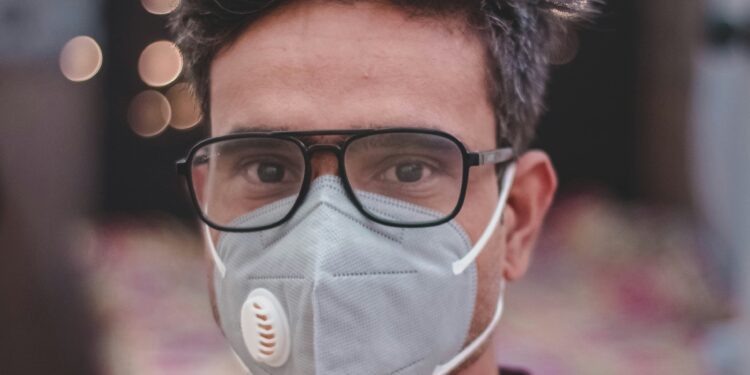As the sun rose over New Delhi in early May, the bustling city awoke to troubling headlines. COVID-19 was surging again, driven by yet another cryptically named variant: Omicron NB.1.8.1. India, weary from previous waves, suddenly found itself confronting a steep five-fold rise in confirmed cases within mere weeks. This new strain’s emergence, swiftly labeled by the World Health Organization as a “variant under monitoring,” ignited frantic online searches worldwide about booster shots, travel advisories, and symptom identification. Yet within India, a stark divide emerged—not simply between the informed and uninformed, but between believers in science and a resilient bloc of pandemic skeptics.
NB.1.8.1 arrived stealthily but decisively, raising global alarm as the WHO flagged the variant’s potential to escape immunity provided by previous infections or vaccines. Immediately, online search engines saw a dramatic spike in queries related to “NB.1.8.1 symptoms” and “vaccine booster effectiveness.” Amidst the predictable chaos of renewed travel restrictions and enhanced surveillance, India’s public health officials braced for a familiar yet dispiriting battle—not only against the virus but against deeply entrenched misinformation and skepticism.
The skepticism that blossomed during earlier waves of the pandemic has evolved into an enduring challenge. In India, this skepticism manifests uniquely, shaped by cultural, political, and social factors that significantly hinder public health responses. From initial hesitancy toward vaccines to widespread dismissal of recommended precautions, this phenomenon has impeded effective pandemic management throughout India’s diverse and densely populated regions.
Compounding this skepticism is the profound fatigue permeating India’s public psyche, a sentiment crystallized after years of successive pandemic waves and sporadic lockdowns. Economic struggles and daily hardships have worn down patience and trust. Citizens question not just the necessity of another vaccine booster but also the credibility of health advisories issued by local and international authorities. Trust in health institutions—crucial in any health crisis—is frayed, exacerbated by inconsistent messaging from governmental and health authorities.
Dr. Anupama Sharma, a public health expert based in Mumbai, expressed concerns that pandemic fatigue has compounded existing misinformation. “Public confidence was always delicate, but successive waves of COVID-19 have deeply eroded trust. Many now choose to believe comforting but scientifically unsupported narratives over unsettling scientific realities,” Sharma noted.
Indeed, these scientifically unsupported narratives proliferate rapidly through social media channels like WhatsApp and Facebook, often propagated inadvertently by community leaders, local politicians, and popular figures. Misinformation about the NB.1.8.1 variant—that it’s no worse than the common cold or that previous immunity fully protects against reinfection—spreads swiftly, undermining official public health messaging. Consequently, even basic measures such as mask-wearing and social distancing are increasingly ignored, viewed as unnecessary or overly restrictive.
Adding further complexity, India’s vaccination campaign faces renewed scrutiny as the efficacy of existing vaccines against NB.1.8.1 remains uncertain. While early data from global health bodies indicate booster doses might offer additional protection, many Indian citizens question the need for boosters, particularly when vaccine inequity remains glaringly unresolved. In rural regions, where healthcare access is limited and vaccine distribution uneven, skepticism has mutated into outright resistance.
This resistance is not merely passive; it actively complicates public health initiatives. Reports from Bihar and Uttar Pradesh highlight instances where vaccination teams have encountered hostility or outright rejection, a dynamic deeply rooted in mistrust rather than mere misinformation. Community elders and local influencers, frequently skeptical of government interventions, actively dissuade residents from participating in vaccination drives, creating localized pockets highly vulnerable to outbreaks.
Political implications further exacerbate the challenge. With elections perpetually on the horizon, political actors are cautious to avoid antagonizing voter bases by enforcing strict public health mandates. Thus, political expediency frequently trumps decisive public health action, compounding existing vulnerabilities to rapid variant spread. This politicization undermines coherent national responses, allowing skepticism to flourish amid fragmented and inconsistent messaging from authorities.
International observers, alarmed by India’s fresh surge, emphasize the global interconnectedness underscored by COVID-19. Variants arising in India, home to nearly 1.5 billion people, quickly spread globally, influencing public health policies from London to Lagos. Thus, India’s internal skepticism is not merely a domestic issue—it is a global concern.
The WHO, recognizing the severity of the challenge, has urged renewed focus on clear, culturally sensitive, and consistent health communication. Yet skepticism’s roots run deep, nurtured by historical mistrust, pandemic fatigue, and systemic challenges within India’s healthcare infrastructure. Addressing this issue demands more than traditional top-down public health directives; it requires meaningful engagement with local communities, trusted intermediaries, and transparent, empathetic communication strategies.
Experts suggest tailored public outreach initiatives that respect local contexts and engage directly with skeptical communities. Building genuine trust and promoting health literacy are imperative in navigating the persistent skepticism that undermines pandemic response efforts. Indian authorities, supported by international health bodies, must prioritize transparency, empathy, and consistency in their public health messaging.
Yet the question remains—can India rally again to face yet another formidable COVID variant? The answer lies not only in scientific advancements and vaccine developments but crucially in restoring public trust and overcoming entrenched skepticism. The NB.1.8.1 surge has reawakened global anxieties, but within India, it underscores a persistent and profound challenge: balancing science-based responses against widespread public skepticism.
Ultimately, India’s fight against NB.1.8.1 will reveal whether public health preparedness can withstand not just viral threats, but the equally virulent threats posed by misinformation and mistrust. As global health depends increasingly on local trust and cooperation, India’s success—or failure—in addressing skepticism will serve as a critical lesson for global pandemic preparedness strategies. The stakes, undeniably high, underscore the urgent need to bridge the gap between scientific reality and public perception in one of the world’s most populous nations.
















